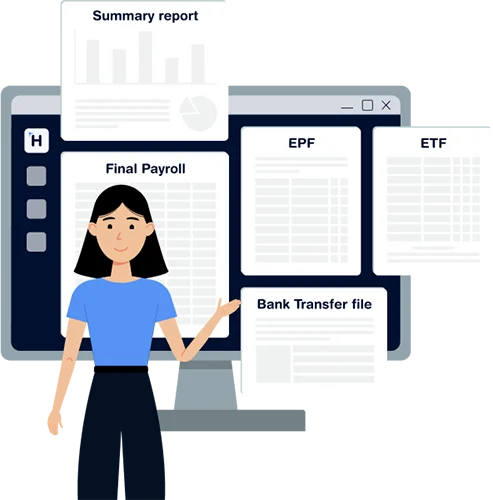Holidays Act of 1971 is the second piece of legislation after the Shop and Office Act that has shaped the holiday calendar of Sri Lanka as we know it. The holiday calendar dictates public holidays, bank holidays, full moon Poya days and Sundays. A lot of these holidays affect government institutions, schools and banks, other private sector organizations are provided with ways to omit or work around these holidays. It is already a widely argued topic whether there are too many holidays in Sri Lanka, therefore hindering the country’s economic growth.
The act covers a wide range of subjects such as the introduction of new laws, powers of the minister, regulations, offenses and interpretations apart from what is discussed in this article. If that is what you are interested in, the writer recommends reading the original act itself. This article will cover the main points of the act deemed important for the public. Like other articles in this series, the writer will quote whole sections from the original act and offer explanations and background information when needed.
Section 2
“It is hereby declared that every Full Moon Poya Day and every Sunday—
(a) shall be a public holiday; and
(b) shall be a bank holiday.”
This section further clarifies the shop and office provision, which made full moon Poya days holidays for all employees. The Holidays act adds that every full moon Poya Day and Sunday, will be considered a public holiday and a bank holiday. The bank holiday will affect all 15 banks that currently operate in Sri Lanka. Some of the online banking services will still operate, but the services will be limited compared to a normal working day. Every year Central Bank of Sri Lanka announces the bank holidays for the year. Here are the bank holidays for 2024.
Section 3
“(a) the several days specified in the First Schedule hereto shall, in addition to the Full Moon Poya Days and Sundays, be public holidays; and
(b) the several days specified in the Second Schedule hereto shall, in addition to the Full Moon Poya Days and Sundays, be bank holidays.”
The bank holidays published by the Central Bank of Sri Lanka can include several days in addition to the full moon Poya days and Sunday. They make it a point to include mercantile holidays and some of the public holidays in the bank holidays list and therefore you only have to refer bank holidays to know what days banks operate on.
Section 5
“(1) Every public holiday—
(a) shall be a dies non; and
(b) shall be kept as a holiday.
(2) Every bank holiday shall be kept as a close holiday in every bank”
“Dies non” is a Latin phrase meaning “a day when courts do not sit or carry on business”, for the purpose of the act also means that it is considered a holiday when it comes to legal matters. When you mention working days in legal contracts, this omits public holidays.
Section 6
Nobody should be forced to make a transaction or do something on a bank holiday that they are not expected to do on a Poya day or Sunday.
The same thing applies to the day following a bank holiday too.
The laws in this act don’t affect the laws already in effect concerning bills of exchange or promissory notes. Also, these laws don’t affect any payments of actions that need to be performed in a court or public office on a bank holiday that is not recognized as a public holiday
Section 7
The Minister of Public Affairs, along with the Minister responsible for a public office or government department, has the authority to declare certain days (like Full Moon Poya Day or Sunday) as not being public holidays for that office or department. Only the days specified in the Minister’s order will be considered public holidays, despite what the Act might say. This is done to prevent inconvenience to the public or disruption of important services.
Minister of Public Affairs can declare full moon Poya days, along with the Poya committee, additional public holidays and bank holidays
Section 13
“(1) No person shall on any Full Moon Poya Day keep open for business closure of certain establishments on Full Moon Poya Days.
(a) any night club, dance hall or any place of public performance; or
(b) any arrack tavern, toddy tavern, foreign liquor shop, liquor bar, or any other premises where any liquor is kept for sale; or
(c) any place where betting on horse racing or gambling of any description whatsoever is carried on; or
(d) any meat stalls.”
The act also dictates a set of rules that apply for the observance of full moon poya days. Certain businesses are prohibited from opening for business on Poya days. These businesses relate to the sins as preached in Buddhism and its publicly accepted culture.
Section 14
“No person shall, on any Full Moon Prohibition of Poya Day, slaughter any animal for the slaughter of purpose of sale, or sell or offer for sale, the flesh of any animal.”
The act also prohibits the slaughter of animals for the purpose of sale on full moon Poya days
Section 15
“Not withstanding the provisions of section 13 it shall be lawful for a person to present any public performance if he obtains the prior written approval of the Minister in charge of the subject of Cultural Affairs.”
Poya days are always tied with elaborate religious observances and festivities. For example, on the days of Vesak Poya, Food stalls that are open for the public free of charge (Dansal), Lanterns and pandols (Vesak koodu, Thoran) and Observance of Sil at temples are a common sight. The act has made provisions for these events, declaring that if prior permission is obtained from the minister of cultural affairs, such public activities are within the law.
Public Holidays listed in the act
- The Tamil Thai-Pongal Day
- Milad-un-Nabi (Holy Prophet’s Birthday)
- National Day
- Maha Sivarathri Day
- The Day prior to the Sinhala and Tamil New Year’s Day
- The Sinhala and Tamil New Year’s Day
- Good Friday
- May Day
- The Day following the Wesak Full Moon Poya Day
- National Heroes Day
- Id-Ul-Fitr (Ramazan Festival)
- Id-Ul-Azha (Haj Festival Day)
- Deepawali Festival Day
- Christmas Day
Bank Holidays listed in the act
- The Tamil Thai-Pongal Day
- Milad-un-Nabi (Holy Prophet’s Birthday)
- National Day
- Maha Sivarathri Day
- The Day prior to the Sinhala and Tamil New Year’s Day
- The Sinhala and Tamil New Year’s Day
- Good Friday
- May Day
- The Day following the Wesak Full Moon Poya Day
- National Heroes Day
- June 30th—Special Bank Holiday
- Id-Ul-Fitr (Ramazan Festival)
- Id-Ul-Azha (Haj Festival Day)
- Deepawali Festival Day
- Christmas Day
- December 31st—Special Bank Holiday.
The public and bank holidays listed in the act, survive on the Sri Lankan calendar to this day. A bank holiday can also be a public holiday or not. Today Public, Nak and mercantile holidays are marked separately on the calendar.
In conclusion, the Holidays Act of 1971 in Sri Lanka plays a critical role in defining public holidays, bank holidays, and cultural observances such as full moon Poya days. It strikes a balance between ensuring essential services and respecting religious and cultural traditions. The Act’s provisions provide clarity and structure to the holiday calendar, impacting various sectors while accommodating both public and private interests.



